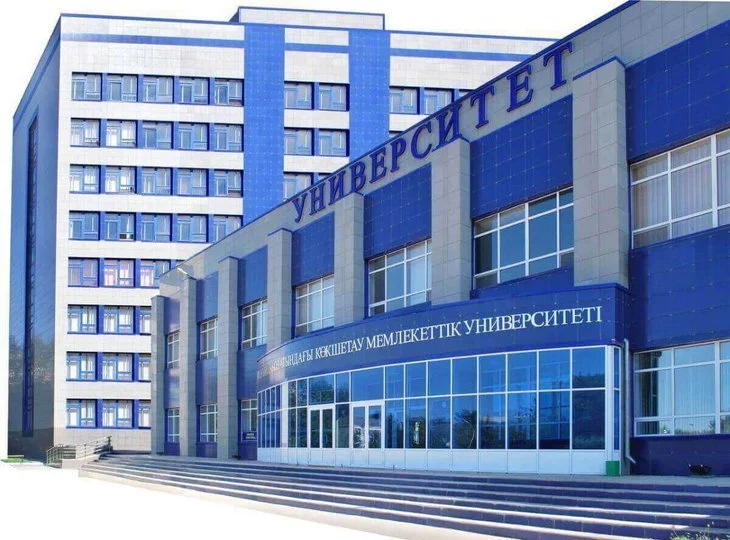DATA SCIENCE

Educational program code
6В06105
Language of instruction
Kazakh, Russian
Learning level
Undergraduate
Duration of study
4 year
Specialized subjects
Mathematics
Informatics
Objectives of the educational program
Training of professional personnel in the field of data analysis using modern information technologiesbased on the development of theoretical knowledge and practical skills in processing big data, thedevelopment and implementation of innovative and creative solutions in the field of data analytics at theregional, national and international levels.
- Academic writing
- Mathematics I
- Mathematics II
- Physics
- Algorithms, data structures and programming
- Mathematical foundations of information technology
- Object-oriented programming I
- Information Security and Protection
- Architecture and organization of computer systems
- Operating systems
- Databasemanagement systems
- Educational practice
- Economic-mathematical modeling
- Mathematics for machine learning
- System programming
- Computer networks
- Machine learningm algorithms
- Теория систем и системный анализ/ Systemstheory and system analysis
- Fundamentals of Economics and enterprise
- Fundamentals of law and anti-corruption culture
- Life safety basics
- Ecology and sustainabledevelopment
- Leadership andyouth policy
- Shokantаnu
- Object-oriented programming II
- Machine-oriented programming
- Web programming
- Programming Mobile Devices
- Basics of cloud technology
- Cloud Computing Applications
- ML and tool design
- Data Management Tools
- IT-infrastructure
- Network Security
- Basics of neural networks
- The basics of artificial intelligence
- Reliability of information systems
- Information theory
- Database Security
- Optimizationof computer systems
- Information Security Standards
- Organizational and legal methods of information protection
- Methods and tools for mining Big Data
- Big Data and High Performance Computing
- Python for Data Science
- Dynamic programming
- Fundamentals of computer 3D modeling
- Professional Kazakh(Russian) language
- Professional Foreign Language
- Web-technologies and their practical application
- Engineering and informational innovationsэ
- Project management
- Marketing analytics based on Big Data
- Natural language recognition
- Computer vision
- Deep Learning in DataSciences
- Operations Research
Learning outcomes and competencies
Speak a foreign (primarily English) language in the field of professional activity and interpersonalcommunication;
Form ideas about a healthy and safe lifestyle, assess the impact of environmental factors on humanhealth, and provide an environmental assessment of the state of the region;
Be able to use the basic laws of natural sciences in professional activities, using methods ofmathematical analysis and modeling, theoretical and experimental research; be able to identify the naturalscience essence of the problems arising in the course of professional activity, involving the appropriatephysical and mathematical apparatus for solving them;
Analyze and design data analysis software tools, as well as algorithms, models and methods requiredto develop software systems, effectively analyze data, and extract knowledge from data;
Apply technologies of interpersonal communication and work in a group, work management in groupdevelopment; use in practice government regulations, orders, orders, standards, regulations, mathematicalmodels, methods, methods and technology for designing, developing, manufacturing, implementing andmaintaining information systems and networks;
Put into practice knowledge of the architecture and types of computers, operating systems,programming languages, programming technologies, database models, protocols for the interaction ofcomputing systems, models and types of data analysis, principles and models of artificial intelligence,modeling techniques, composition and decomposition of systems, information security, principles ofconsistency and integrity, methods of system/structural analysis, software life cycle;
Program and test various solutions (models, methods), take part in the creation and management ofsystems at all stages of their development life cycle;
Be able to develop terms of reference, select the optimal solution to problems, plan the stages of theproject, model the structure of the subject area; define functional and performance requirements forsystem components;
Be able to solve machine learning problems according to modern standards, apply basic machinelearning and mathematical programming algorithms, apply concepts and tools when working with largeamounts of data;
Be able to use the main tools and frameworks for solving problems in the field of Data Science,understand modern architectures of neural networks and apply them in practice to solve problems, solveComputer Vision / Natural Language Processing problems;
Demonstrate the ability to analytical and axiological analysis in the study of historical events andprocesses; competently conduct a philosophical discussion and defend their own positions on topicalissues of our time; understand the essence of the state and law, be prepared for life in a democraticsociety, for social interaction with other people on the basis of moral and legal norms accepted in society.
Apply methodologies of joint analysis, design and decision-making to create and develop their ownbusiness; develop management decisions and carry out organizational work on their implementation inpractice; be able to communicate effectively with others, communicate their thoughts, both in writing andorally.